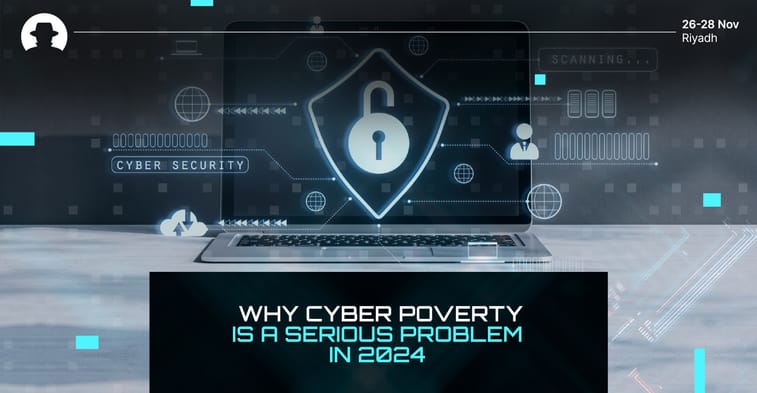
When privacy creates blind spots: the exploitation of privacy-first tech
New research reveals how privacy-first technologies are creating fraud blind spots, as AI-driven attacks scale faster than detection capabilities.
Read More
In 2023, upcoming Black Hat MEA speaker Ramy Houssaini (Chief Cyber & Technology Risk Officer, & Group Privacy Officer, at BNP Paribas) was one of a group of security experts who teamed up to launch the Cyber Poverty Line Institute.
Now, a year on, we caught up with Ramy to gain a little insight into the state of cyber poverty – and ask why cybersecurity leaders need to collaborate and close the gap between those who are informed and protected, and those who aren’t.
We’re always eager to learn. So we also asked what we can do at Black Hat MEA to facilitate this work and play our role in combating cyber poverty.
Here’s what he told us.
“The Cyber Poverty Line Institute (CPLI) is dedicated to closing the widening cybersecurity gap, often referred to as ‘cyber poverty.’ This growing divide poses significant risks not just to individual organisations, but to the global economic and social fabric.
“CPLI aims to tackle this challenge by developing a global cyber enablement platform, driven by strategic public-private partnerships, to elevate cybersecurity standards in underserved regions and sectors.”
“Yes, cyber poverty is a growing problem, as the digital landscape rapidly evolves – deepening the divide between those with robust cybersecurity resources and those without.
“Several factors contribute to the growing problem of cyber poverty:
“Addressing cyber poverty is crucial to ensuring that all organisations, regardless of size or location, have the ability to protect themselves against cyber threats. Without intervention, the growing divide in cybersecurity capabilities could lead to more frequent and severe cyber incidents, with widespread economic and social consequences.”
“Black Hat events provide invaluable opportunities for cybersecurity professionals to exchange cutting-edge knowledge and insights, enhancing their expertise and staying abreast of the latest threats and solutions.
“They facilitate critical networking and collaboration among industry leaders, which can drive innovation and improve cybersecurity practices across organisations. By spotlighting emerging threats and vulnerabilities, Black Hat events help raise awareness and drive proactive measures to strengthen global cybersecurity resilience.
“Specifically, events like Black Hat MEA are crucial in addressing social imbalances in cybersecurity by facilitating knowledge sharing, improving resource access, and fostering a more inclusive cyber community.
“Here’s how:
“Overall, by highlighting the cybersecurity challenges faced by less-resourced regions, Black Hat MEA can draw global attention and support. This increased visibility can lead to greater funding, innovation, and collective efforts to close the cybersecurity gap.”
Thanks to Ramy Houssaini at BNP Paribas. There’s still time to register now and attend Black Hat MEA 2024, where you’ll learn directly from the industry’s leading experts.
Join the newsletter to receive the latest updates in your inbox.

New research reveals how privacy-first technologies are creating fraud blind spots, as AI-driven attacks scale faster than detection capabilities.
Read More
Cybersecurity founders share how Black Hat MEA helps them test ideas, prove product value, and grow their business.
Read More
Cybersecurity is now a leading barrier to financial innovation. New research explains why fraud, legacy systems and risk are slowing payments progress.
Read More